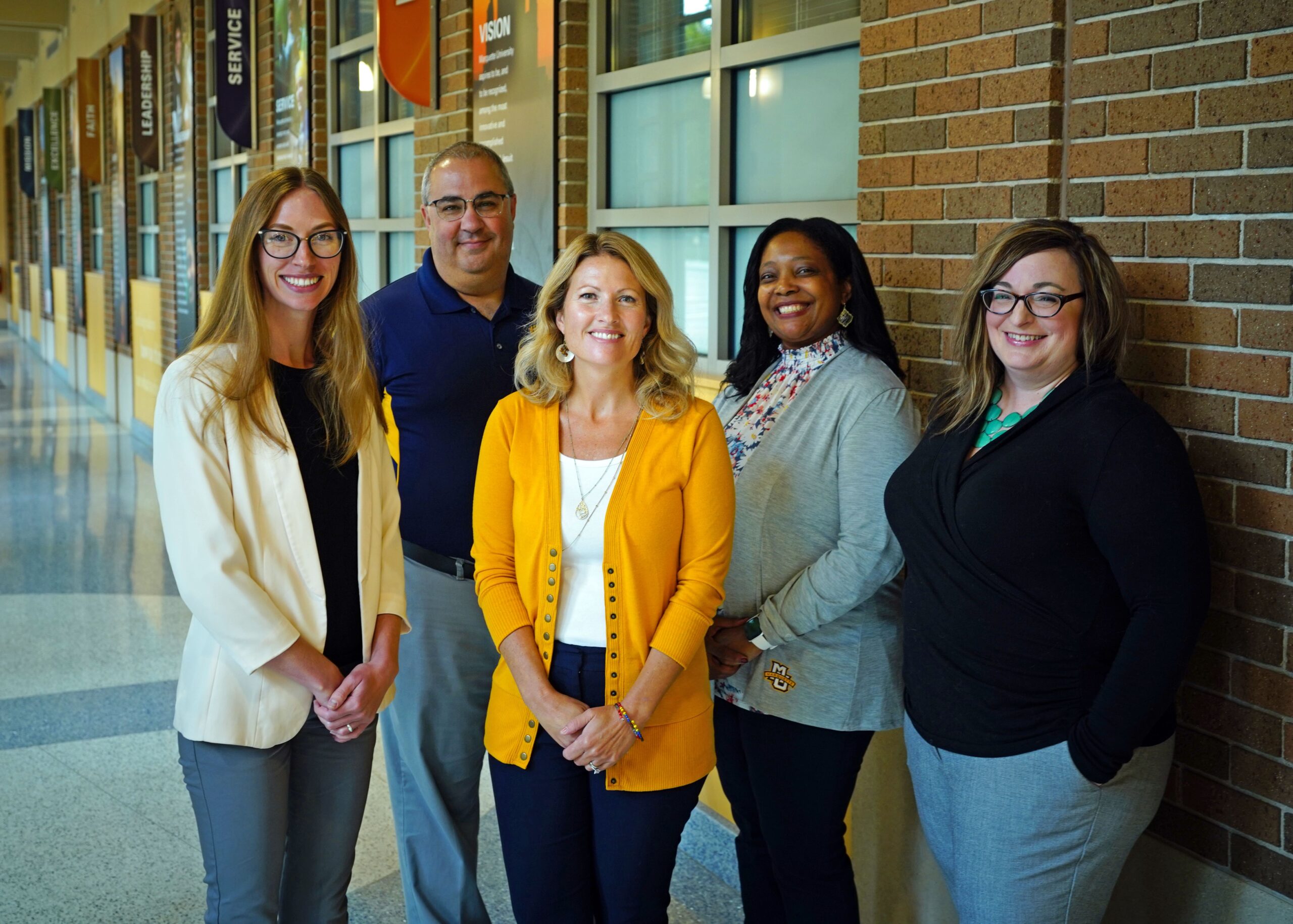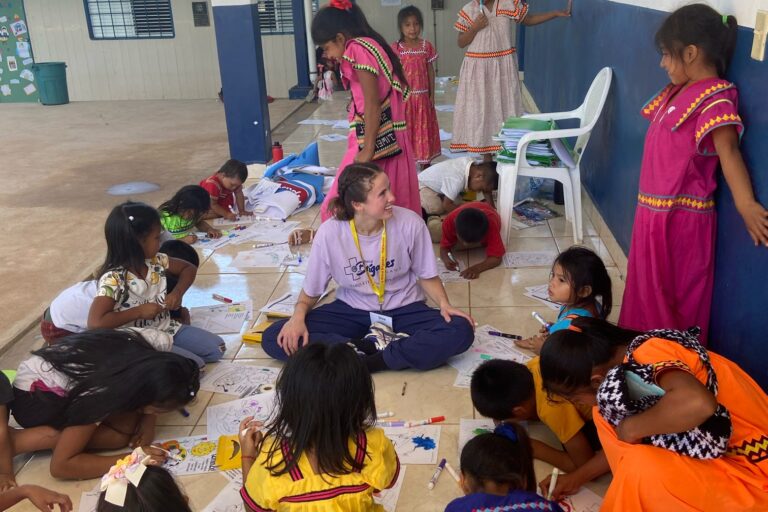Marquette University has put an emphasis on student success in recent years, establishing an initiative in 2018 to provide graduate students access to interdisciplinary, partnership-informed, mission-driven support. This coincides with efforts at the undergraduate level, including development of the Lemonis Center for Student Success.
The Graduate Student Success team has evolved since these early programming initiatives, adding members embedded throughout the university with the expertise to specifically meet the needs of graduate students. Among the recent hires is Lizzy Machado, a career counselor embedded within the Career Services Center who works entirely with graduate students.
“The Career Center’s resources, services and programming have always served graduate students,“ said Machado. “The conversation around graduate student success and the addition of a career counselor specifically serving graduate students came out of the desire to provide more specialized support.”
As new services were established, the Graduate Student Success Team also focused on establishing a unified source for all available resources to help graduate students understand what is available to them and help them connect with support specific to their paths.
“One of the things we started working on right away was creating a single inventory of which services are already available to graduate students specifically,” says Dr. Scott D’Urso, who was named the Graduate School’s associate dean for academic affairs and student development in 2022. “In going through the process of reaching out to many campus organizations and units – the library, the Wellness Center, all these different places – we created a much clearer and accurate picture of which services support graduate students in their unique needs and what the value is for our students.”
With a clear, accurate inventory of student success services that are valuable for the graduate student population, the Graduate School launched a redesigned newsletter as well as a new webpage this fall that serves as a central hub for graduate student success resources related to academics, career planning, finances and wellness.
“Now, if a graduate student says, ‘Oh, I have a question about this,’ they can go to this website,” D’Urso said. “It includes a description of these services for graduate students, a contact name and a link for more information.”
The website additionally features contact information for the Graduate Student Success team, which, alongside D’Urso and Machado, includes:
- Margaret Nettesheim Hoffmann, director of the Career Diversity Initiative and associate director of career diversity, Humanities Without Walls Consortium
- Melissa Econom, graduate student development coordinator
- Letta Cato, diversity, equity and inclusion specialist
Together, the team takes a holistic approach to help graduate students excel in all facets of their Marquette life.
“It means not only being successful academically – and that doesn’t look the same for everyone – but more importantly, have they grown as a whole person?” Cato said. “Have they been enriched by the cultures that are here at Marquette? Have they been enriched by the fine arts activities that Marquette offers? Have they been exposed to diversity, different people from different backgrounds? Graduate success is success of the whole person.”
Addressing the unique needs of the graduate student experience
Inherently, the undergraduate and graduate student populations have different needs. Where undergraduate students are navigating higher education for the first time and learning to discern their interests, graduate students have already received a degree and aim to push themselves further down a path they’ve already selected.
Additionally, their campus experiences are different. Many graduate students pull off an impressive balancing act of navigating school, work and family obligations simultaneously at a level not typically expected of undergraduates.
“Not only are they students, but a lot of them are TAs or RAs or general graduate assistants. They’re managing a job on campus,” D’Urso says. “Other times they’re not. They’re either working a part-time job or something else to manage the financial side of life.”
Meanwhile, the rigor of work has ratcheted up as students develop into experts in their respective fields.
“Here, they’re writing either a thesis or dissertation, or a graduate level work that might be published someday,” D’Urso said. “So, how can we get different writing resources that would speak to those needs? Same goes with presentations. How do they prepare for a conference? How do they design a poster for a session to display their research? How do they engage in a lab situation where they are working with other students on a project for a senior researcher?”
The Graduate Success webpage includes subcategories for academic resources and financial support services, as well as opportunities to connect in community with others.
As students begin looking toward the future, they can attend a career fair or set up an individual appointment with Machado to discuss application materials, interview preparation, job search strategies and career exploration.
“At the master’s and doctoral level, some people think students know exactly what they want to do and where they want to go,” Machado said. “That isn’t always the case.”
The Graduate School emphasizes that no two students take the same journey – the definition of success varies. The university’s career diversity initiative, steered by Nettesheim Hoffmann, encourages students to explore a wide variety of paths grounded in their values and interests.
“Career diversity is a national reform movement that seeks to reimagine the purpose of Ph.D. training in society for the 21st century,” Nettesheim Hoffman said. “Our methods include centering personal identity in career formation, thinking about what we find meaningful in the work that we do, and how we can place our values at the forefront of graduate student development.”
One of the key considerations for these success initiatives is scalability, ensuring the sustainability of equitable access to support services as well as developmental and experiential opportunities – while also communicating all the above in a timely manner to graduate students. For example, Econom recently orchestrated the Graduate Student Services Fair in August for new and returning graduate students. The event hosted 17 campus units with representatives who shared about resources and services available to graduate students. More than 100 graduate students attended.
It all fits into the Graduate Success Team’s mission: to support graduate students’ personal, academic and professional success during their graduate education journey and beyond.
Graduate students are encouraged to take advantage of these opportunities. The webpage with more information can be found on the Graduate School website, as well as a calendar of Graduate School events.
Those with further questions can reach out to graduatestudentsuccessteam@marquette.edu.



